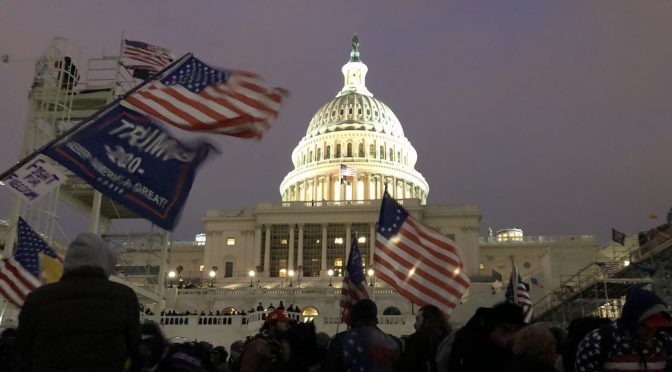By Sudha Setty
On January 6, 2021, a group overwhelmingly comprised of white supporters of President Trump engaged in extraordinary violence against people and property at the U.S. Capitol. In the weeks since those attacks, many terms have been deployed by politicians, the media, legal commentators, and legal academics to describe the events: riots, insurrection, sedition, coup, and terrorism, just to name a few.
Many have expressed hope of seeing the alleged perpetrators legally labeled as “terrorists.” Intuitively the label fits because they caused mass terror at the U.S. Capitol with the stated desire of disrupting democratic processes and effectuating government change, but for some the label rightly derives from schadenfreude for right-wing extremists who have long been perceived as being treated leniently by policy and law, and in political discourse …

